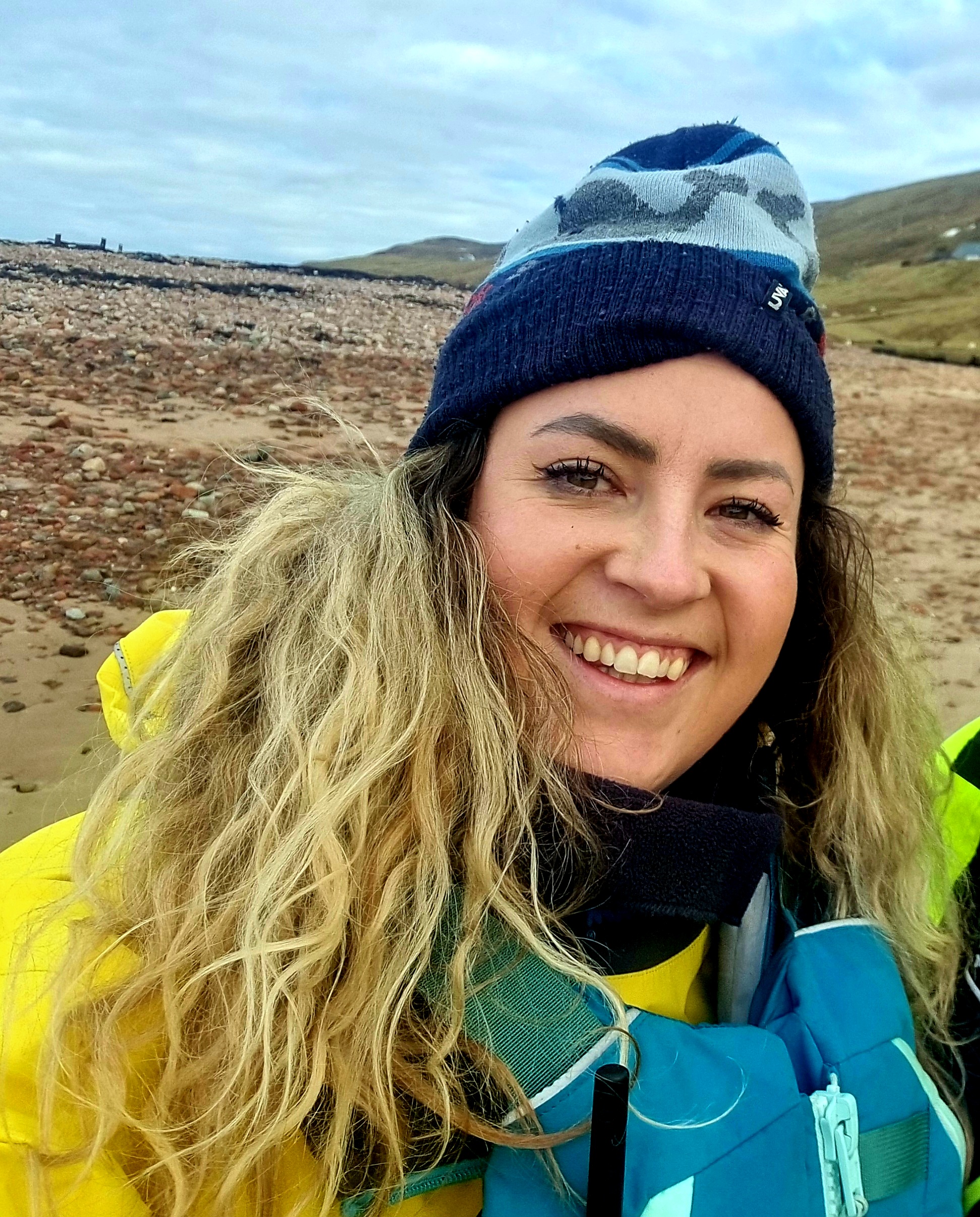Emily Hague
Post Doctorate Research Associate - Marine Mammal Scientist
Emily’s research focuses on investigating the impacts and effects of human threats to marine mammals (particularly whales, dolphins, porpoise and seals). Her work and expertise spans a broad range of topics, from photo-ID fieldwork, modelling vessel-collision risk to Arctic whales, developing systematic evidence bases, managing AIS networks, analysis of drone footage for photogrammetry and behaviour, interviewing maritime operators, comparing cumulative effects assessment practice across maritime industries, and working alongside marine conservation charities to bolster their data collection efforts.
Emily’s main body of work has focused on supporting community efforts to collect data around the coastline of Scotland, and has included developing the Scottish Vessel Project (in collaboration with Whale and Dolphin Conservation), and working with community groups and members to better utilise their data as scientific outputs that can contribute to marine conservation. Emily is motivated to ensure community collected data are utilised, and as such when Emily led the submission for the IUCN to designate the Moray Firth to Humber Estuary as an Important Marine Mammal Area (IMMA), many of the key data sources highlighted were community science led.
At UHI Shetland, Emily is working on the BLUE CONNECT project, to showcase how local people and industries can contribute to data collection on marine mammals within the ‘Shetland and Fair Isle Important Marine Mammal Area’. Please don’t hesitate to contact Emily if you’d like to be involved.
Prior to working at UHI Shetland, Emily completed her PhD at Heriot-Watt University, on ‘marine mammals in the Anthropocene’. For a number of years prior to this, Emily worked for the Sea Mammal Research Unit (University of St Andrews), conducting bottlenose dolphin and harbour seal photo-ID surveys, and also worked for their consultancy arm ‘SMRU Consulting’, completing Environmental and Cumulative Impact Assessments and providing advice to government and other organisations.

Outside of work, Emily volunteers for the RNLI, and is passionate about advocating for increased inclusion of women and other minority groups working and volunteering within maritime, marine and conservation spaces.
You can find out more about Emily’s research at https://www.emily-hague.com/